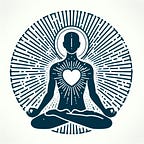Astrometry and Astrology: Unraveling the Mysteries of the Cosmos and Human Destiny
In the vast expanse of the cosmos, celestial bodies have captured human fascination since ancient times. From the rhythmic dance of planets to the distant twinkling of stars, humans have sought to understand the mysteries of the universe and their potential impact on earthly affairs. This quest has given rise to two distinct yet interconnected disciplines: astrometry and astrology. While both delve into the study of celestial bodies, they approach the subject matter from different perspectives. Astrometry is the scientific study of the positions and motions of celestial objects, while astrology is the belief that these positions influence human affairs and natural phenomena. In this article, we embark on a journey to explore the realms of astrometry and astrology, unraveling their complexities and shedding light on their historical significance and modern-day applications.
For a limited time, you can receive a free copy of ‘The Astrologer’s Guide: Mastering Birth Chart Interpretation’ by subscribing to our newsletter. Get your free book here: https://hermesastrology.substack.com/p/your-free-book.
Astrometry: Mapping the Cosmos
Astrometry traces its roots back to ancient civilizations, where early astronomers meticulously observed the movements of celestial bodies to track time, navigate the seas, and predict celestial events. Over time, these observations evolved into a systematic science aimed at understanding the structure and dynamics of the universe.
Historical Development: Astrometry has a rich history spanning millennia. Ancient civilizations, such as the Babylonians and Egyptians, developed rudimentary methods for measuring the positions of celestial bodies. Greek astronomers, including Hipparchus and Ptolemy, made significant advancements in astrometry, laying the groundwork for modern astronomical techniques.
Techniques and Instruments: Astrometry employs a variety of techniques and instruments to measure the positions and motions of celestial objects. From the naked eye observations of ancient astronomers to the precision instruments of the modern era, such as telescopes, cameras, and space-based observatories, astrometry has continually evolved to enhance our understanding of the cosmos.
Modern Applications: In the modern era, astrometry plays a crucial role in various scientific endeavors. Astronomers use astrometric data to study the dynamics of galaxies, track the orbits of asteroids and comets, and search for exoplanets beyond our solar system. Astrometry also contributes to the field of astrophysics, providing valuable insights into the nature of space and time.
Astrology: Interpreting Celestial Influences
Unlike astrometry, which focuses on the scientific study of celestial bodies, astrology is a belief system that posits a correlation between the positions of celestial bodies and human affairs. Although often criticized for its lack of empirical evidence, astrology has persisted throughout history and continues to captivate the minds of many.
Historical Origins: The origins of astrology can be traced back to ancient civilizations, including Mesopotamia, Egypt, and China. Early astrologers observed the movements of celestial bodies and correlated them with earthly events, believing that the positions of the stars and planets held symbolic significance for human destiny.
Philosophical Foundations: Astrology is based on several philosophical principles, including the concept of interconnectedness and the belief in a cosmic order. Astrologers believe that the positions of celestial bodies at the time of a person’s birth can influence their personality, behavior, and life path.
Astrological Charts and Interpretations: Astrology uses birth charts, also known as natal charts or horoscopes, to map the positions of celestial bodies at the time of an individual’s birth. Astrologers analyze these charts to provide insights into various aspects of a person’s life, including personality traits, relationships, career paths, and future events.
Contemporary Perspectives: While astrology has ancient roots, it continues to evolve in the modern era. Contemporary astrologers incorporate psychological principles, counseling techniques, and holistic approaches into their practice. Astrology has also gained popularity in mainstream culture, with horoscopes featured in newspapers, magazines, and online platforms.
Bridging the Gap: Exploring the Intersection of Astrometry and Astrology
Despite their differences, astrometry and astrology share a common heritage and mutual fascination with the cosmos. While astrometry provides scientific explanations for the movements of celestial bodies, astrology offers a symbolic interpretation of their influence on human affairs. The intersection of these disciplines raises intriguing questions about the nature of the universe and the relationship between the celestial and terrestrial realms.
Cosmic Synchronicity: Some proponents of astrology argue that there is a deeper connection between celestial phenomena and human experiences than can be explained by scientific observation alone. They suggest that astrology offers a symbolic language for understanding the synchronicity of events in the cosmos and human consciousness.
Psychological Significance: Psychologists have explored the psychological significance of astrology, suggesting that the symbols and archetypes found in astrological charts may resonate with universal human experiences. While skeptics dismiss astrology as pseudoscience, others see value in its capacity to provide insight, guidance, and self-reflection.
Cultural and Historical Context: The study of astrometry and astrology is inseparable from the cultural and historical contexts in which they emerged. Ancient civilizations relied on astrology for guidance in agriculture, governance, and personal affairs. Today, astrology continues to play a role in shaping cultural beliefs and practices around the world.
Conclusion:
Astrometry and astrology offer complementary perspectives on the cosmos and human existence. While astrometry provides scientific explanations for the movements of celestial bodies, astrology offers a symbolic interpretation of their influence on human affairs. Whether viewed as scientific inquiry or philosophical exploration, both disciplines continue to inspire wonder, curiosity, and contemplation about the mysteries of the universe and our place within it.
